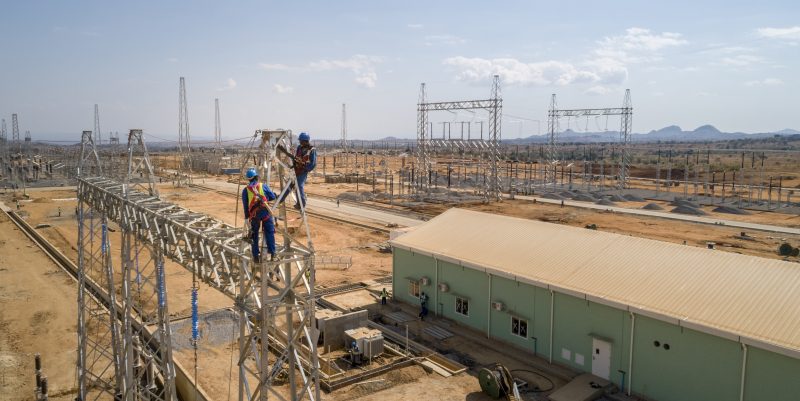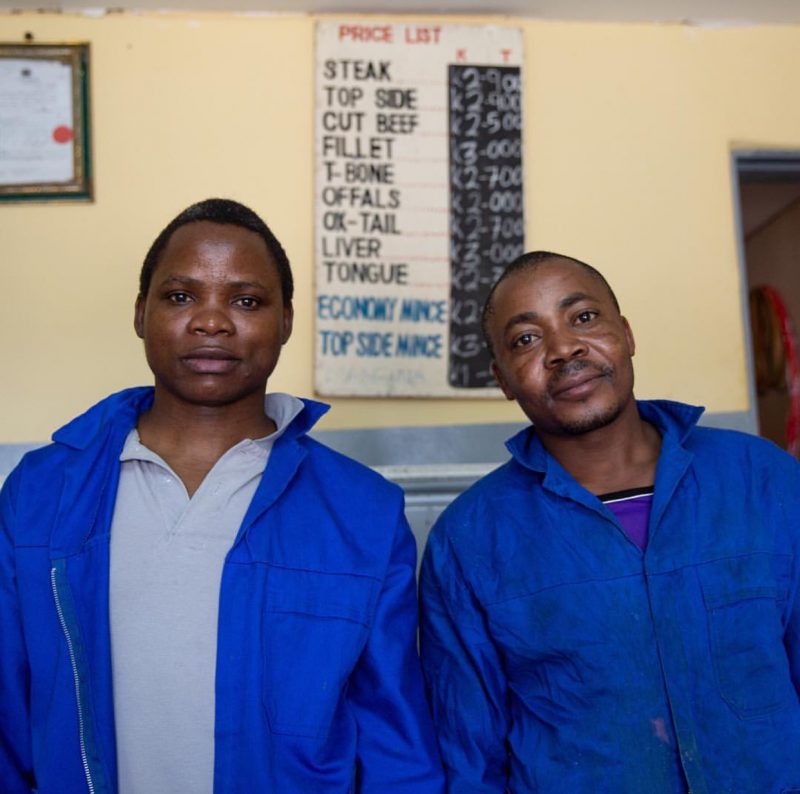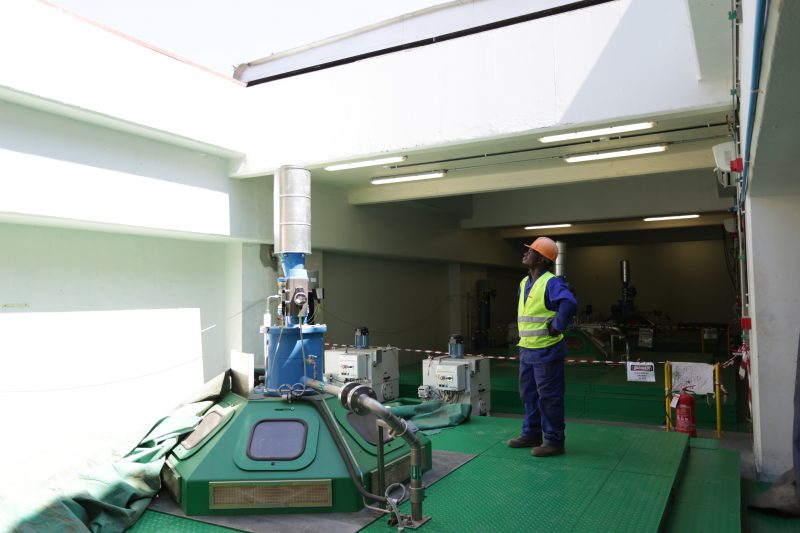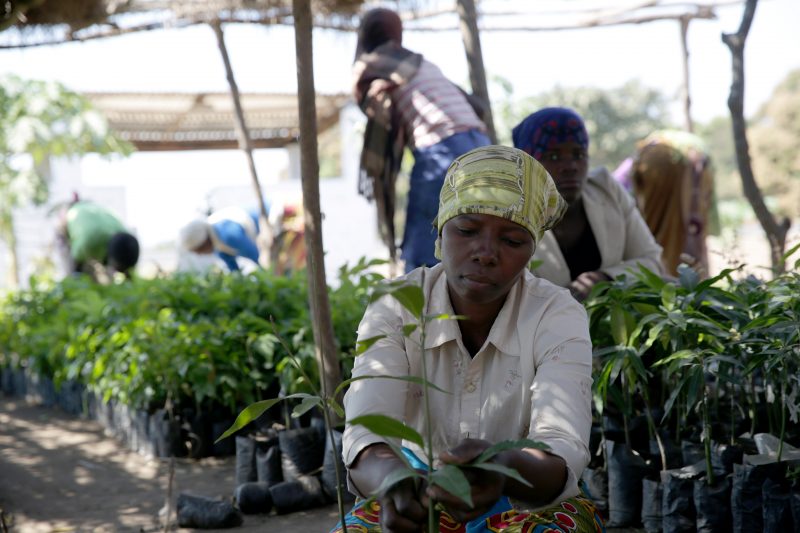
Photo: Kyle LaFerriere
Malawian workers at the newly constructed high-voltage Nkhoma substation.
When I moved to Malawi, I learned first-hand that lack of reliable power is a major constraint for Malawians on a daily basis. The availability and quality of the nation’s power supply has been a clear and constant obstacle to growth across the economy. Few Malawians—just around 10 percent—have access to grid electricity and those who are connected are frequently confronted with extended blackouts. The lack of a robust power sector severely curbs the amount of private investment the country is able to attract, limits the productivity of Malawian businesses and compromises important services such as health and education.
MCC’s $350.7 million compact was designed to reduce poverty in Malawi by revitalizing the country’s power sector.

MCC
For butcher Velson Phiri, right, and his assistant, left, lack of reliable electricity affects their bottom line.
I am proud to have been a part of the MCC story that is changing the landscape of Malawi’s power sector. Earlier this week, we celebrated the closure of MCC’s five-year $350 million compact with the Government of Malawi, which focused on improving the availability, reliability and quality of the power supply, expanding access to power, reducing the cost of doing business, and revitalizing the way the country produces and delivers power.
As part of the compact, a new high-voltage (400 kilovolt) electricity transmission line and associated substations were constructed. The 173 kilometer line and substations will provide a modern electricity backbone to Malawi’s power grid and serve as a ‘super electricity highway,’ transmitting power more efficiently and reliably throughout Malawi from the south where the power is generated from hydropower plants, reducing technical losses and allowing for future connection via Mozambique to the Southern African Power Pool that operates at the 400 kilovolt level. Once connected, Malawi will no longer be an electricity island in southern Africa.
Infrastructure was just one aspect of the compact, however. The large-scale infrastructure investments of the compact were complemented by a comprehensive Power Sector Reform Project. The project worked to strengthen pivotal institutions and enhance the regulation and governance of the power sector by providing technical assistance and a leading-edge enterprise management systems to the Electricity Supply Corporation of Malawi (ESCOM) to improve financial and operations management. MCC investments also supported the development of a new regulatory environment that would lay the foundation for greater private sector participation in the power sector that would boost new generation capacity and expand access.
Breaking the Cycle in Malawi
Environmental management was also a critical component of MCC’s systemic approach to strengthening and sustaining Malawi’s power sector. Inadequate access to power created a vicious cycle in Malawi along the Shire River Basin that supplies water to the hydropower plants. The market for wood charcoal does not just threaten the environmental health of the country, it also disrupts hydropower generation, which produces over 90 percent of Malawi’s power.
MCC
The Nkula A hydropower station underwent a complete rehabilitation as part of MCC’s compact with Malawi.
The country’s low access to power rate and limited affordable fuel sources has driven many Malawians to use wood charcoal, which has devastated the nation’s forests and caused a host of problems for the environment. The destruction of the forest has led to more sediment and weed accumulation in the Shire River, causing significant and costly disruptions in hydropower production, which then exacerbate that same demand for more wood charcoal.
To help break the cycle, MCC’s compact with the Government of Malawi included a $32 million Environmental and Natural Resource Management Project that worked to improve the availability of power by reducing chronic weed infestations and excessive sediment buildup in the Shire River Basin while implementing modern environmental and natural resource management techniques in upstream areas.

MCC
The Tiyanjane Horticultural Club benefited from the Social and Gender Enhancement Activity to improve sustainable management of resources, reduce natural resource degradation, increase economic opportunities, and help decrease outages at downstream hydropower plants.
Through our holistic and catalytic approach to modernizing the nation’s power sector, Malawi is now poised to deliver more electricity to more Malawians than ever before. Our projects have set the stage for greater private investment and a new era of inclusive economic growth in the country. That will mean better lives and a more promising future.

